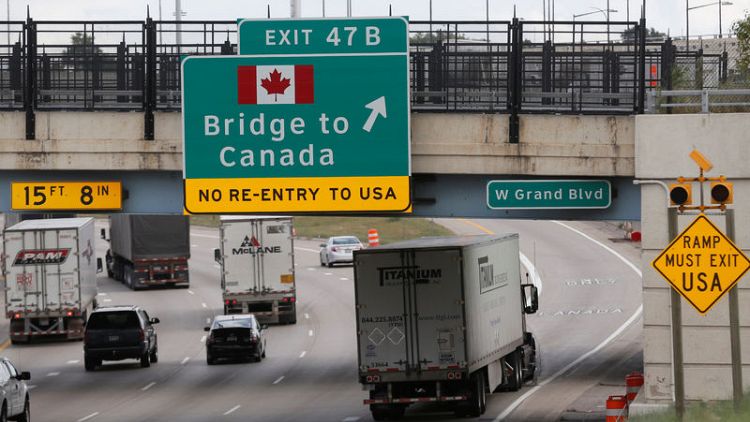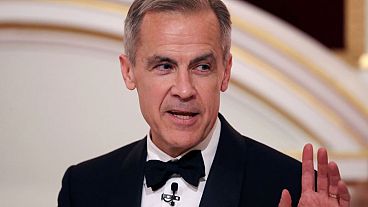WASHINGTON (Reuters) - Top U.S. and Canadian trade negotiators were set for a second day of talks on Thursday over a revised North American Free Trade Agreement after their subordinates worked late into the night to flesh out opportunities for a compromise deal.
Canadian Foreign Minister Chrystia Freeland sounded sanguine on Wednesday as she emerged from negotiations with top U.S. trade negotiator Robert Lighthizer, although she cautioned that no trade deal was done until the last issue was nailed down.
U.S. President Donald Trump has threatened to push ahead with a bilateral deal with Mexico, effectively killing the almost 25-year-old three-country NAFTA pact, which covers $1.2 trillion (928.7 billion pounds) in trade. The United States and Mexico reached an agreement on overhauling NAFTA at the beginning of last week, turning up the pressure on Canada to agree to new terms.
"We sent them (the officials) a number of issues to work on and they will report back to us in the morning, and we will then continue our negotiations," Freeland told reporters on leaving the U.S. Trade Representative's office in Washington on Wednesday.
Trump sounded a more upbeat note earlier, and said he expected to know whether a deal could be struck to include Canada in the next few days.
Neither Freeland nor Trump spelled out areas of disagreement and neither detailed the progress that had been made. Lighthizer did not speak to the press or issue a statement.
It was not clear when talks would resume on Thursday, and there were no immediate indications what progress may have been made in Wednesday's late session among staff.
Wednesday was the first day that negotiations between the two countries resumed after four intensive days of talks last week ended without a deal on Friday after the mood soured.
Canada wants a permanent exemption from Trump's steel and aluminium tariffs, and removal of the threat of auto tariffs. It also wants to continue protections for its dairy industry and defend lumber exports to the United States, which have been hit with duties.
As the two sides met, new economic data showed that the U.S. trade deficit with Canada grew to $3.1 billion in July. This could provide ammunition to Trump, who has accused Canada of "cheating" Americans.
Trump nearly tore up the NAFTA pact last year after visiting farmers in Wisconsin, a major U.S. dairy producer that Washington says has been hurt by Canadian protectionism.
Trump has claimed that the 1994 pact has caused the loss of hundreds of thousands of U.S. jobs, something that most economists dispute.
Data released on Wednesday showed the U.S. trade deficit hit a five-month high of $50 billion. The shortfall with Canada shot up 57.6 percent.
Trump has notified Congress he intends to sign the trade deal reached last week with Mexico by the end of November, and officials said the text would be published by around Oct. 1.
Negotiators have blown through several deadlines since the talks started in August 2017. As the process grinds on, some in Washington insist Trump cannot pull out of NAFTA without the approval of Congress.
"Trump is relying on bluster and bullying in a desperate attempt to get Congress to swallow his half-baked deal. You can't fix NAFTA without fixing issues with Canada," said Senator Ron Wyden, the top Democrat on the Senate Finance Committee, which oversees trade.
(Reporting by Jason Lange and David Ljunggren; Writing by David Ljunggren and David Chance; Editing by Bernadette Baum)



